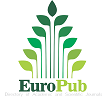Reality, fiction and bioethics in the posthuman world of “Kentukis” by Samanta Schweblin
Abstract
This work aims to present concepts such as “posthumanism” and “transhumanism”, by establishing connections and differences between them to explain how humanity relates to technology today. The space in which these concepts are communicated is the dystopian novel Kentukis (2015), by the writer Samanta Schweblin. It proceeds by citing situations and extracts from it, by offering a reflection on the future of humanity in accordance with the concepts mentioned above, giving an account of the complex and sublime universe of Kentukis, as well as the relationships between life, subjectivity, identity and fictional characters, on the one hand; and contemporary reality in the 21st century, on the other hand. The above is undertaken by interspersing ethical and bioethical arguments and reflections that directly concern, and in particular the ominous and growing role that technology plays in the daily events of human life.
Downloads
References
Agier, M. (2002). Aux bords du monde, les réfugiés. Flammarion.
Anders, G. (2011). La obsolescencia del hombre. Sobre el alma en la época de la segunda revolución industrial (J. Monter, Trad.). Pre-Textos. (Obra publicada en 2002)
Bauman, Z. (2006). Vida líquida. Paidós Ibérica.
Bauman, Z. (2015). Vidas desperdiciadas. La modernidad y sus parias. Paidós.
Bauman, Z. (2017). El arte de la vida. De la vida como obra de arte. Ediciones Culturales Paidós.
Bostrom, N. (2016). Superinteligencia. TEEL Editorial.
Braidotti, R. (2008). Trasposizioni: Sull’ética nomade. Luca Sossella Editore.
Braidotti, R. (2015). Lo posthumano. Gedisa editorial.
Chaparro, N. (2024). Transhumanismo: los límites de lo humano. La Torre del virrey. Revista de estudios culturales, 1(35), 1-26. https://goo.su/xBPUJQ
Fukuyama, F. (2003). Our Posthuman Future: Consequences of the Biotechnology Revolution. Picador.
Gayozzo, P. A. (2021). Singularidad tecnológica y transhumanismo. Teknokultura. Revista de Cultura Digital y Movimientos Sociales, 18(2), 195-200. http://dx.doi.org/10.5209/TEKN.74056
Han, B. (2022). La sociedad del cansancio. Herder editorial.
Lastra, F. (2019). De la explotación en Marx a la superexplotación de la fuerza de trabajo en América Latina. Revista Sociedad, 38, 4-13. https://goo.su/jpwMP5
Linares, J. E. & Iglesias J. M. (2023). Biopolítica y razón de fuerza mayor en Eduardo Nicol. Isegoría, (69), e10. https://doi.org/10.3989/isegoria.2023.69.10
Pichardo, L. (2018). Reinventing bioethics in a post-humanist and post-truth society. The present and future of bioethics. Persona y Bioética. 22(2), 212-222. https://doi.org/10.5294/pebi.2018.22.2.2
Postigo, E. (2021). Transhumanismo, mejoramiento humano y desafíos bioéticos de las tecnologías emergentes para el siglo XXI. Cuadernos de Bioética, 32(105), 133-139. https://doi.org/10.30444/CB.92
Schweblin, S. (2018). Kentukis. Penguin Random House.
Sibilia, P. (2005). El hombre postorgánico. Fondo de Cultura Económica.
Sibilia, P. (2008). La intimidad como espectáculo. Fondo de Cultura Económica.
Verbeek, P. (2011). Moralizing Technology: Understanding and Designing the Morality of Things. University of Chicago Press.
Copyright (c) 2024 Carlos Alberto Navarro-Fuentes (Autor/a)

This work is licensed under a Creative Commons Attribution 4.0 International License.
The authors retain copyright.
This work is under international license Creative Commons Attribution 4.0.
The articles published by the scientific journal "Notes on Bioethics" of the Universidad Catolica Santo Toribio de Mogrovejo, Chiclayo Peru, can be shared through the international public license Creative Commons Attribution CC BY 4.0
























 LIBRARY USAT
LIBRARY USAT